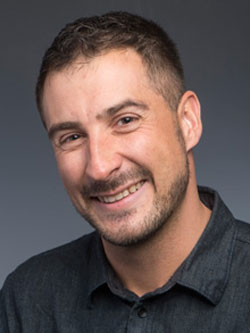2011 Young Alumni Award
 Dr. Casey Golomski ’06
Dr. Casey Golomski ’06View Casey’s acceptance speech
Casey Golomski ’06 epitomizes the St. Norbert ideal of a “citizen scholar” … a person of exceptional academic accomplishment who is at the same time deeply engaged in the world around him.
Casey has been the recipient of two Fulbright awards and grants from the Andrew W. Mellon Foundation; in 2010, he also won the Carrie Hunter-Tate Award for academic and professional achievement given by the American Anthropological Association.
He distinguished himself additionally in his burgeoning academic career by teaching at Northeastern University and the University of Massachusetts at Boston. Currently, he serves as assistant professor of anthopology at the Univeristy of New Hampshire. Casey's dissertation was “Right Passages: The Work of Ritual in Swaziland’s Age of HIV-AIDS.”
Swaziland has the world’s highest HIV prevalence, and Casey’s work focuses on the ways the epidemic influences ritual and religious practices across the life-course, such as how people invest in an emergent life insurance market to accomplish burials.
With typical (for him) academic rigor, Casey prepared for his field research by immersing himself in southern African history, ethnography and the Zulu and
SiSwati languages, spoken by some 13 million people.
His goal in carrying out his research is to help bridge cultural divides and bring
greater understanding of the unique forces that impact humanitarian crises and the search for solutions.
As Casey says: “I am most thrilled to do the work that I do because it opens up people’s eyes to the world, making the familiar strange and the strange familiar.”
That’s a reflection of what he feels St. Norbert did for him. The college, he says, “encourages students to take a full range of courses, including them in conversations they may not be privy to at a larger university. … My education allowed me to see a diverse trajectory and arena of world religions … to consider different forms of spirituality and answers to broader existential questions … to think about philosophical issues. It allowed me to develop a singular, confident voice and take on bigger questions about culture.”
But his work in Africa is more than just an intellectual exercise. In keeping with both the tenets of the Norbertines and Casey’s own passion for social justice, it reflects a deep concern for those who are marginalized, underprivileged and oppressed.
To those who know him best, that comes as no surprise. They paint a portrait of someone generous with his time and attention, an exemplar of communio, and, as one of his professors notes, “an enormously kind young man.” We are proud to honor him as young alumnus of the year.










